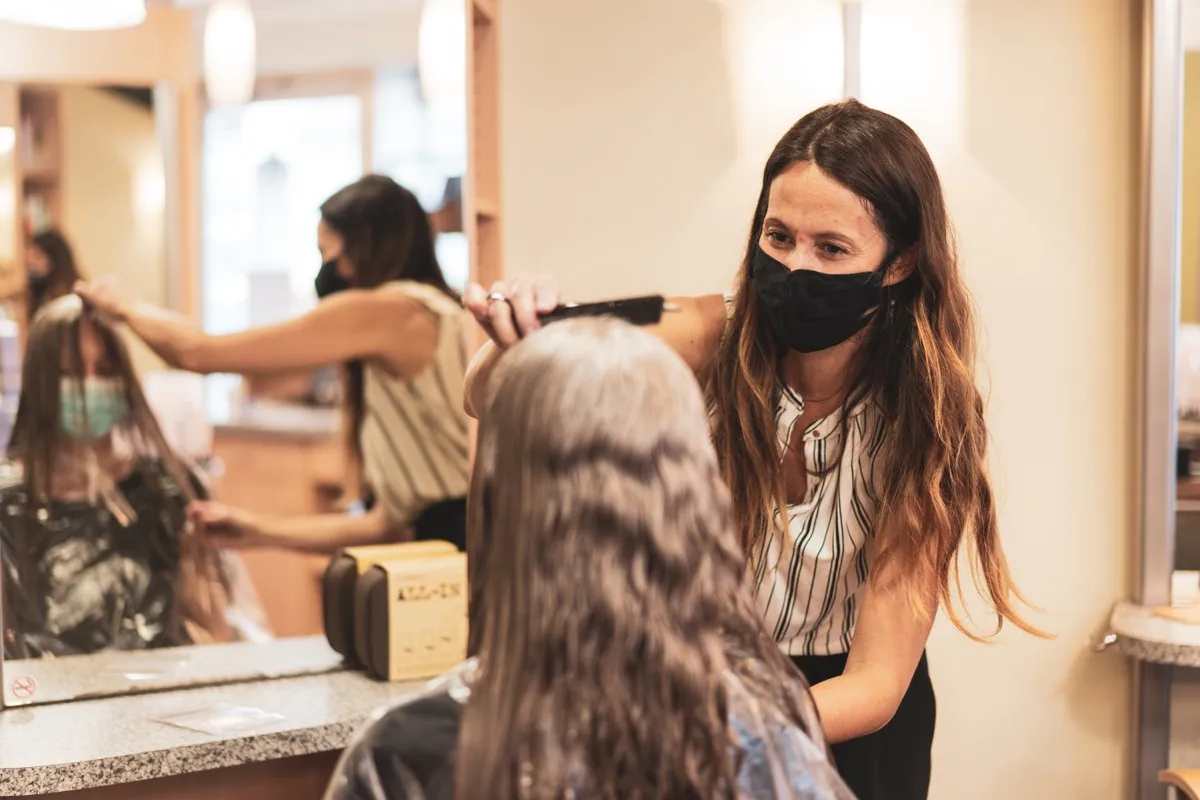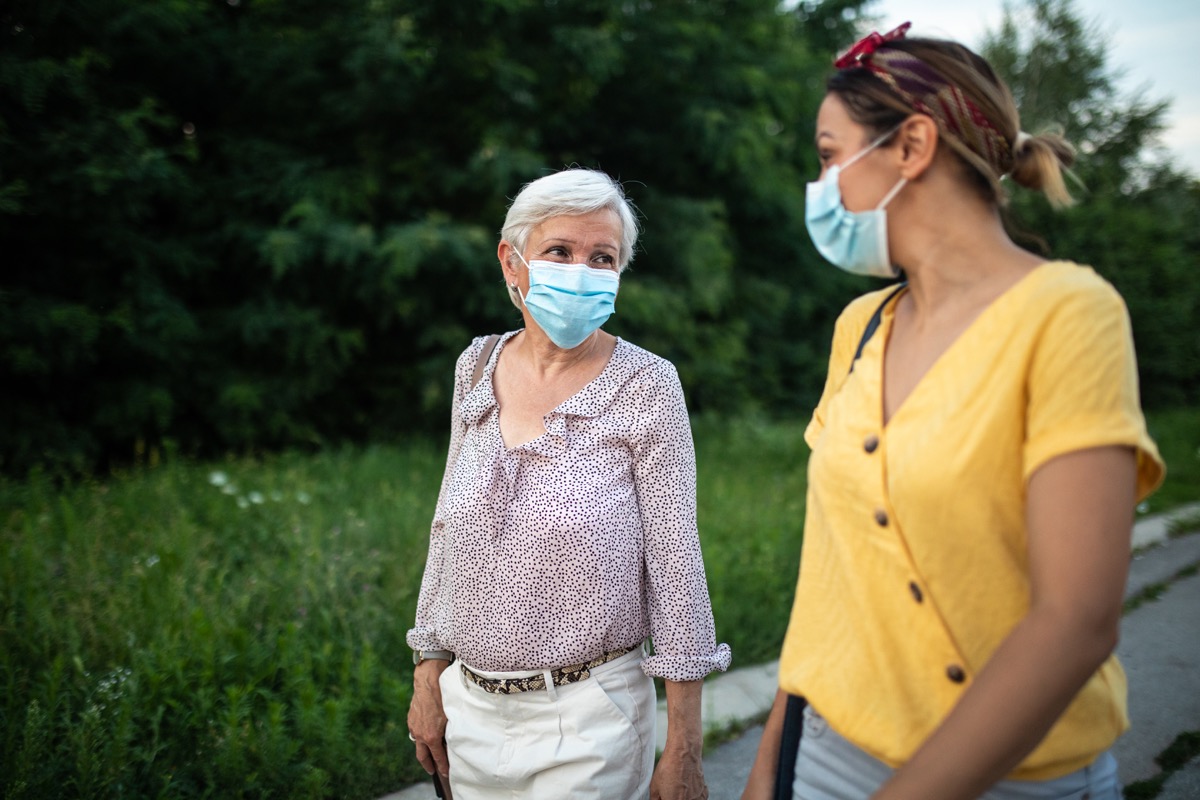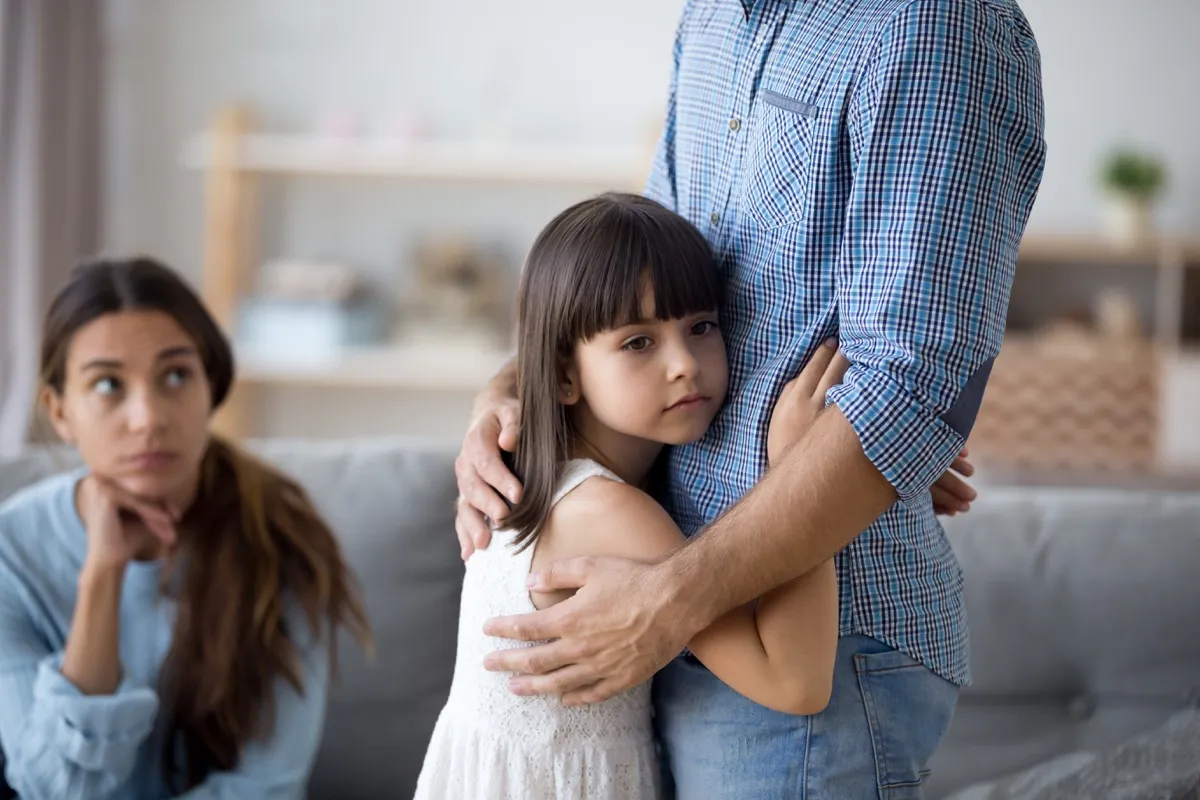6 Times You Should Never Hug Someone, Etiquette Experts Say

Under the right circumstances, a hug can be a warm and welcome expression of mutual affection. However, a hug also has the potential to cause deep discomfort when deployed at the wrong moment or with an unwilling person.
“Many emotions can be expressed via the hug such as happiness, comfort, or compassion,” explains Jules Hirst, the founder of Etiquette Consulting. While most of the time, hugs are considered a common greeting for people who know each other well, “it is important to understand the culture, the context, and the relationship before attempting to initiate a hug,” she tells Best Life.
To avoid an awkward interaction or even cause offense, it’s best to keep a few key rules in mind, etiquette experts say. Read on to learn the six times you should never hug someone—at least without asking first.
READ THIS NEXT: 4 Times You Should Never Shake Someone’s Hand, Etiquette Experts Say.
1
Skip hugs in the workplace.

The workplace is rife with complicated power dynamics that can become even more complicated with physical contact. That’s why Hirst recommends that you never hug colleagues under the majority of circumstances.
“The workplace is considered a professional environment and usually a hug-free zone,” she explains. “This would include during business meetings and business events. You should also avoid hugging when meeting someone for the first time, such as a job interview.”
Certain extenuating circumstances might make a hug more acceptable, though you should still proceed with caution, she says.
“When meeting up with fellow co-workers at conferences, seminars or other professional events, a hug would depend upon the relationship between the two co-workers. Two co-workers who have worked together for a long time and haven’t seen one another in a while may hug when they first see each other,” she acknowledges.
2
That goes for other people’s workplaces, too.

Colleagues would be wise to never hug unless both parties have made their comfort level exceedingly clear. This rule also goes for anyone who works for you in any capacity.
“While you may have a longstanding relationship with your hair stylist, you probably do not have such a relationship with the plumber, mechanic, or doctor. It is best to have a boundary to keep the relationship professional and objective, thus hugging is a no-no,” says Hirst.
“When in doubt, offer a handshake,” she adds, noting that this is considered more formal and respectful.
READ THIS NEXT: 6 Surprising New Rules for Tipping, According to Etiquette Experts.
3
Don’t hug if someone is sick or injured.

A hug brings you directly into someone else’s personal space, and that may be unwelcome if that person happens to be sick or injured. You should never expect a hug under these circumstances.
“If the person is ill, wearing a mask, has any sort of cast or brace, you should hold back to see if their body language is indicating a hug,” suggests Jodi RR Smith, founder of Mannersmith Etiquette Consulting.
Hirst adds you should always remain sensitive to the subtle cues of others, regardless of how they appear to be feeling physically. “Pay attention to the person’s body language, as their movement will tell you whether or not they are open to receiving a hug,” she says.
4
Skip the hug if it’s culturally or religiously insensitive.

Another time you should not hug someone is if you know that their culture or religion doesn’t typically embrace.
“Some cultures do not hug, so having an understanding of the cultural norms of people helps you to determine the proper greeting,” says Hirst. “This would also hold true with different religious beliefs. Knowing ahead of time can save a lot of awkwardness.”
Smith says there may be certain cues that let you know it’s best to ask before initiating physical contact. “Note when the other person is wearing religious garb, head coverings, or obviously modest attire,” she says. “In these cases, it is better to presume there will not be a hug.”
5
Don’t try to hug if someone’s arms are full.

Even people that love a good hug may find it unwelcome at an inconvenient moment. Smith says that if someone’s arms are full, for instance, a hug isn’t appropriate.
“If they have just walked in the door with groceries, packages, or luggage, the priority is getting the bundles where they need to go and then the hugging can commence,” the etiquette expert tells Best Life.
She suggests saying something like. “Hello! We are so happy to see you. Let’s get those inside so I can give you a big hug!”
For more etiquette tips sent directly to your inbox, sign up for our daily newsletter.
6
Don’t assume all friends or family would like a hug.

It’s common for family members and close friends to hug, and this is usually received as a welcome greeting.
“However, some people do not appreciate the invasion of personal space and prefer not to hug,” says Hirst. “This is where you would need to understand the relationship,” as well as the context of the event, she notes.
“Weddings are happy times where you would see a lot of hugging. Funerals are sad and some people would like a comforting hug, while others prefer to grieve in their own way and do not want to hug,” Hirst elaborates.
Smith says that it’s crucial not to assume that children will want to give you a hug, especially if they don’t know you or remember you well. “It is important to allow the child to decide if they would like to hug you,” she says.
Simply say, “I’m your Aunt Tilly, your dad’s big sister. It is so nice to see you. If you would like to give me a hug, let me know,” Smith suggests.